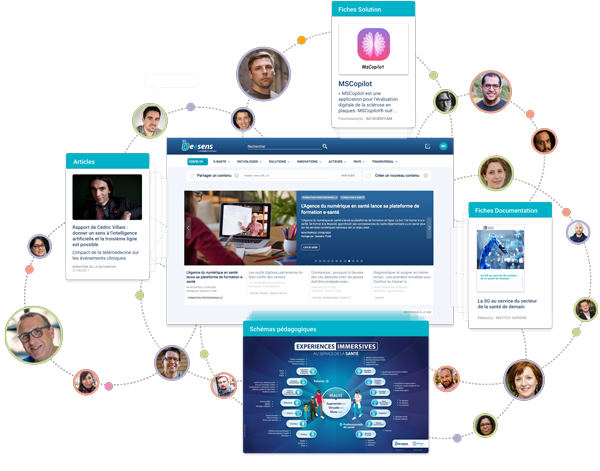
EN BREF ...
" Predictive modeling and artificial intelligence (AI) have great potential to improve care in a wide range of clinical areas including diagnosis, risk assessment, lifestyle manage- ment, and home monitoring.Such AI-driven approaches to improving care could have significant impact if applied effectively in the care of common chronic diseases with high morbidity and mortality such as diabetes mellitus.In partic- ular, clinical decision support (CDS) is a promising approach to informing the care of chronic conditions leveraging AI. Indeed, machine learning (ML)-based CDS tools have been explored for providing pharmacotherapy recommenda- tions and predicting the risk of complications in the context of chronic disease. Interoperability standards have also been explored as a means to facilitate the dissemination of CDS tools for common chronic diseases, including for providing AI-driven care recommendations. Despite its great promise, AI-based CDS for improving the care of chronic diseases, especially for the purpose of treat- ment selection support, is still in early stages. At least two important challenges must be overcome to fulfill this promise. The first challenge is accurate and robust prediction of expected treatment outcomes based on real world data. Despite their successful application in other clinical areas, ML algorithms such as Random Forest (RF) and Gradient Boosting Tree (GBT) can lead to biased estimations in the context of predicting treatment outcomes. Also, ML approaches are able to learn only the patterns encountered in the training dataset. Thus, models produced using ML approaches may give rise to unexpected results in new clinical contexts and may therefore be unacceptable to clinicians practicing in those settings." En bref issu de l'étude.
Rédacteur(s) de la fiche : Beesens TEAM
Introductio
1 - In tincidunt nunc ac velit tristique
- Pellentesque congue, magna elementum suscipit vestibulum
- Aenean eleifend sodales ipsum vitae consequat
- Quisque est leo tempus vel purus eu, placerat tincidunt nisl
2 - Sed lobortis elit vitae mollis consectetur
- In tincidunt nunc ac velit tristique
- Donec accumsan elit ac ornare eleifend
- Sed pellentesque suscipit quam ut finibus
- Fusce imperdiet neque sit amet ipsum ullamcorper scelerisque
3 - Lorem ipsum dolor sit amet
- Pellentesque congue, magna elementum suscipit vestibulum
- Aenean eleifend sodales ipsum vitae consequat
- Quisque est leo tempus vel purus eu, placerat tincidunt nisl
Conclusio
Pour accéder à ce contenu,
créez votre compte
gratuitement

Accéder à :
- L'ensemble de la veille e-santé sélectionnée
par la communauté Beesens, - Des documents de références de la e-santé,
- Et bien plus encore...
Déjà inscrit ? Identifiez-vous
